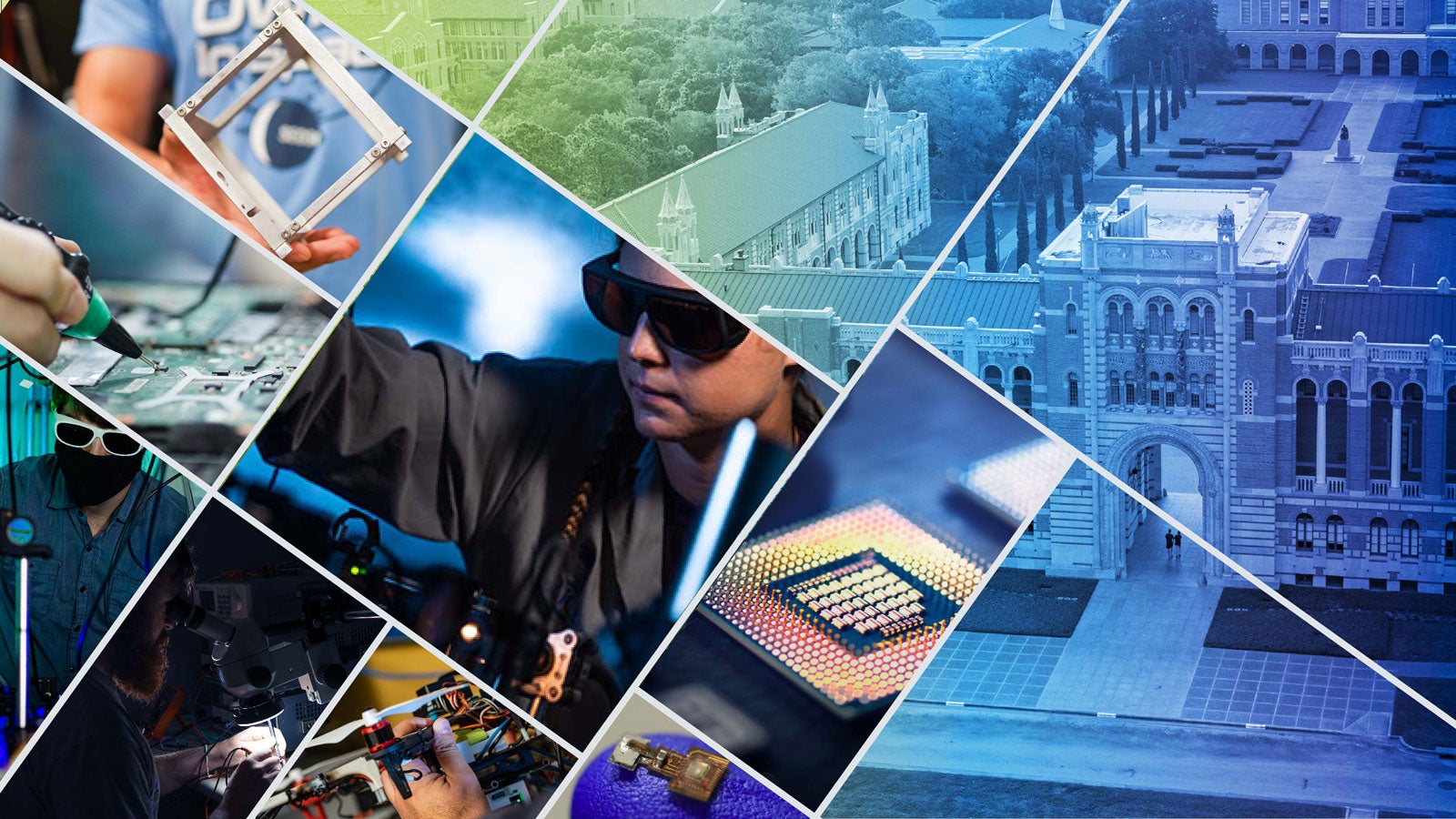The Electrical and Computer Engineering Department (ECE) at Rice University has revamped its undergraduate program to meet the emerging trends and demands of the ECE landscape. Effective fall 2022, the department will be introducing new courses and focusing its credit requirements. The objective is to develop a flexible curriculum that allows students to choose from a broad range of course options and provides them with the ability to specialize in their area of interest while still giving them a solid foundation in areas such as computer engineering, photonics, neuroengineering, and data science.
As technology rapidly advances, the curriculum for electrical and computer engineers must keep up. There has been an explosion in recent years in new technologies based on quantum information science and technology and digital health. These new technologies are not just simply extensions of existing ones but require new science, mathematics and engineering principles. For this reason, ECE continually updates its curriculum and brings in new faculty who are experts in these emerging fields.
Overall, the program will consolidate the core requirements of the Bachelor of Science in the Electrical and Computer Engineering (BSECE) program into 125 credit hours, rather than the current 134 credit hour requirement. Changes to the curriculum include reducing math and science credit hours from 33 to 30, adding a new introductory physical electronics laboratory, reducing the open elective range by six credit hours, and moving two introductory chemistry courses from required to elective status. The changes are based on significant student feedback (via townhalls and written comments) and months of discussions to meet all degree requirements. The department also accounted for ABET accreditation requirements while revising the curricula.
The significant updates will effectively allow all students to design their own major, meaning that they can potentially add minors or dual majors that interest them. The aim is to provide flexibility in recognition of changing landscape of engineering jobs. Data Science is one area of study that is both rapidly growing and increasingly becoming essential to engineers. Core courses in the systems data science area will be modified to enable students more flexibility to undertake a data science minor.
“Curricula are living documents that require regular reviews and revisions to improve learning outcomes and reflect the ever-evolving nature of engineering disciplines. Several of our departments are currently making revisions to their curricula, including reducing the required hours. This adds flexibility for the students to customize their education according to their interests, and also allows them to take courses that emphasize social responsibility,” said Luay Nakhleh, the William and Stephanie Sick Dean of the George R. Brown School of Engineering.
In addition to these adjustments, the degree has been renamed from Bachelor of Science in Electrical Engineering to Bachelor of Science in Electrical and Computer Engineering to better reflect the breadth of the program.
The addition of a physical electronics lab is a noteworthy change. This new one credit lab will add to and strengthen our existing labs in computer engineering, data science, and systems. The lab will introduce students to the field of quantum engineering. There is currently a world-wide effort to develop technologies based on the principles of quantum engineering that are expected to revolutionize computation, communication, and sensing leading to quantum computers as we move beyond current silicon-based devices. ECE hopes to bring its students to the forefront of the new and exciting field of quantum information science and technology (QIST).
“We are excited to enable additional flexibility for our students, especially as we are growing in new areas of quantum engineering, digital health, neuro-engineering, next-gen computing and data science. As always, our goal is to train the next generation of engineers who will tackle some of the world’s most pressing challenges in energy, computing, health, and sustainability,” said Professor Ashu Sabharwal, the Chair of the Department of Electrical and Computer Engineering.
Department faculty voted unanimously to approve the proposal for the updates in December 2021 and held a Town Hall with undergraduates to ensure that the students' needs and concerns were considered in making the curriculum changes and improvements.
“The students welcomed the proposed changes in requirements,” Professor Joseph Cavallaro, Chair of the ECE Undergraduate Committee, said. “They also welcomed the reduction in the number of open or free electives so that the total degree requirements would be 125 credit hours.”
Sophomores, juniors, and seniors this fall will have the option to follow either the new or old requirements, while incoming students for Fall 2022 will begin under the new curriculum.
“Students have been asking for these changes for several years, so it's great that the department has been receptive towards students' feedback. The reduction in hours is a big improvement since it allows us more time to pursue topics we're passionate about,” said ECE senior Scarlett Spindler.
Perhaps one of the most exciting changes coming to ECE is the addition of The Ralph S. O’Connor Building for Engineering and Science, which is scheduled to open in the summer 2023. The $152 million structure will feature “five floors of state-of-the-art research laboratories, classrooms, seminar rooms and a makerspace.” The building will house offices and research labs for faculty members across several departments in engineering. This will allow for better organization and an overall improvement in the quality of education of students in ECE.

